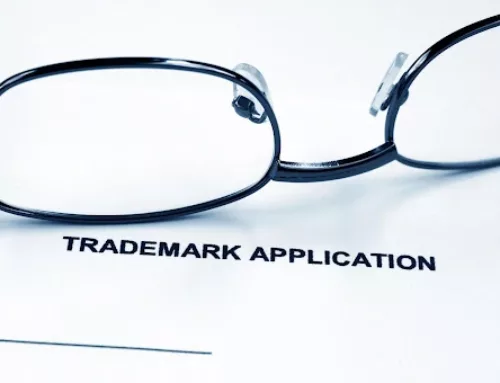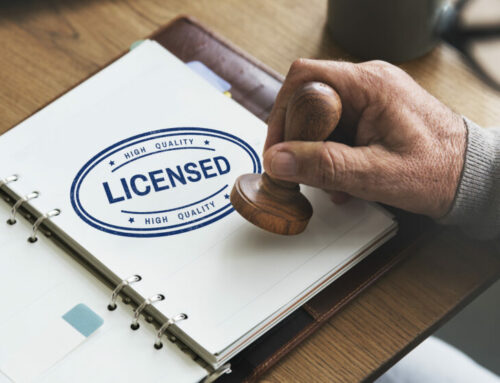When a new or small business owner is applying for their trademark, they may be tempted to avoid using an attorney to try to save money or time. They may have a friend, relative, or mentor who has filed a trademark application who offers to help. However, there are several dangers when letting someone who is not an attorney assist you with the trademark application process. If you have questions about applying for a trademark, contact the experienced intellectual property attorneys with War IP Law PLLC at 202-902-6362 to obtain answers to all of your questions.
Non-Attorneys Are Precluded from Representing Applicants
Perhaps the most significant danger of allowing someone who is not an attorney to assist with the trademark application process is that the United States Patent and Trademark Office (USPTO) precludes non-attorneys from representing applicants. This means that non-attorneys are not legally allowed to represent applicants at any stage of the process.
If the USPTO discovers that a non-attorney assisted an applicant, the USPTO may terminate the trademark application and the applicant would then need to start the process of filing a trademark application again.
Trademark May Not Receive a Thorough Search
A trademark application will be rejected if it interferes with an existing registered trademark. Trademarks do not have to be the same to be rejected as interfering or confusing. They only need to be similar enough and be in the same classes or categories to potentially be confused.
A comprehensive search of the USPTO databases is one part of the search to help ensure an applicant’s trademark is unique. However, state databases and a common law trademark search should also be part of the search to ensure that an applicant’s trademark is not being used elsewhere by another business that may not have applied for their trademark yet but could still have rights.
Trademark May Be Weak
Some applicants choose a trademark based on sentimental reasons. While these can be good trademarks, an attorney may be able to objectively evaluate the trademark and advise the applicant on its strength. An attorney may also be able to offer suggestions about how to improve the trademark and make it stronger or how to select a stronger one.
The examining attorney at the USPTO may offer suggestions in their comments on a rejection. However, it is important to remember that the examining attorney represents the Trademark Office, are dealing with many applicants and therefore, do not have any specific applicant’s best interests at heart.
Scope of Trademark Use May Be Too Narrow
Part of the trademark application process includes choosing the categories or classes that the trademark will cover. There are 45 categories total, with 34 designated for goods and 11 for services. The application should include a complete list of all goods and services the applicant will want to use the trademark for in the near future. Applicants cannot make additions to the trademark application at a later time.
This part of the process is very nuanced. If the Applicant chooses a specific class during the application process, it is important that the correct class is chosen. Alternatively, the application may be approved but leave space for someone else to come in and file in the correct class with a similar trademark that prevents the original applicant from using their trademark as intended. If you have questions about which categories you should select, the experienced attorneys at War IP Law PLLC may be able to assist you.
Wrong Owner May Be Named
Trademarks can be owned by individuals, partnerships, limited liability corporations, corporations, estates, trusts, sole proprietors and more. If an incorrect owner is listed in the trademark application, it may not be correctable. Sometimes, the application will have to be canceled and a new one filed.
Additionally, if the trademark is used by a related company, the applicant may need licensing agreements or other documents to ensure they retain trademark control and that the trademark is used properly.
May Use the Wrong Filing Basis
When beginning the trademark application process, the applicant must have a statutory basis and meet the statutory requirements of the basis. If they choose the wrong basis, or do not satisfy the requirements, the USPTO will issue an office action and allow the applicant to correct the error. However, this will extend the time it takes for the application to be approved. This process may also increase the cost of registering a trademark.
Each filing basis has its own requirements and one basis may be better than another for an applicant. Making the right selection can be critical to an application’s approval. The USPTO provides four filing bases that can be selected:
- Use in commerce: The trademark is already being used in commerce.
- Intent-to-use: The trademark is not yet being used in commerce, but the applicant intends to use it with the goods and services specified.
- Foreign application: Provides a priority filing date for applicants who also applied for registration in a foreign country. The priority filing date would be the same date as the foreign application.
- Foreign registration: Allows applicants to apply for a trademark in the United States when they have already registered it in a foreign country.
Why Would You Hire a Trademark Attorney Instead of Other Attorneys?
While it is technically true that lawyers can practice in all fields of law, most specialize in specific areas. Trademark lawyers specialize in trademarks and become thoroughly familiar with the trademark application process. They practice before the USPTO every day. This allows them to keep up to date on policies, procedures, and rules.
Specializing in trademarks also means that a trademark attorney is more efficient. Trademark lawyers are also generally better able to adapt to changes in the procedures, rules, or policies. Additionally, a trademark lawyer will likely better understand rejections such as the mark not being used as a mark, likelihood of confusion, improper specimens, and others. This means a trademark attorney can be more effectively and efficiently explain a rejection to the applicant and help them make any necessary corrections.
Are You Ready to File a Trademark Application?
The trademark application process can be lengthy. The process requires attention to detail and checking in to ensure that the USPTO has not sent information or office actions that require a response. While there is a lot of information available to help guide applicants through the process, many still find they have questions. If you are ready to file a trademark application but have questions or need other legal help, contact the knowledgeable trademark attorneys with War IP Law PLLC at (202)800-3754 to go over your questions and concerns.




